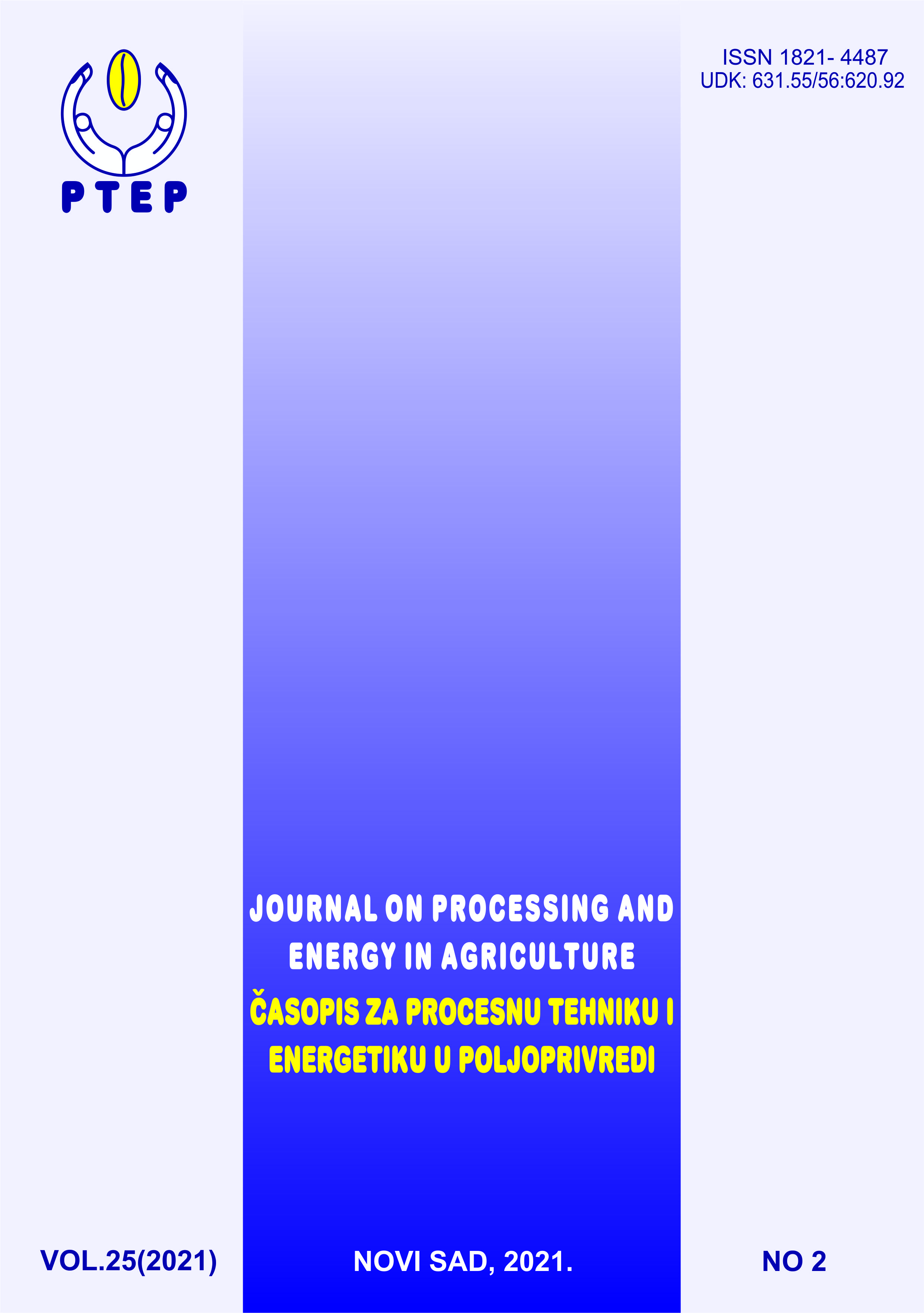INDICATORS OF ECONOMIC EFFICIENCY OF SOUR CHERRY IN DIFFERENT PRODUCTION SYSTEMS
Abstract
The subject of this research is the economic results of conventional and organic production of sour cherries in the Republic of Serbia. The aim of the research is to determine the economic efficiency and the possibility of greater representation of organic production, as a system of conservation of natural resources and especially land. A minimum selling price of organic cherries (0.44 €/kg) has been set, at which producers can achieve a gross margin of 2,530 €/ha, as well as in the conditions of conventional production. By selling organic sour cherries at a much better selling price (0.50 €/kg) than the price of sour cherries from conventional production (0.36 €/kg), producers manage to "cover" production costs of 2,840 €/ha and achieve a gross margin of 3,910 €/ha. The gross margin includes the reimbursed lost economic benefit of 1,030 €/ha and a profit of 2,880 €/ha.
References
FiBL (2020). Data on organic agriculture 2007-2017. The Organic-World.net website mainained by the Research Institute of Organic Agriculture (FiBL), Frick, Switzerland, https://statistics.fibl.org/
(Date of access, 05.12.2021)
Mani, V., Agarwal, R., Gunasekaran, A., Papadopoulos, T., Dubey, R., Childe, S. (2016). Social sustainability in the supply chain: Construct development and measurement validation. Ecol. Indic., 71, 270–279.
Milić, D., Lukač-Bulatović, M. (2005). Stanje i tendencije proizvodnje voća u Srbiji. Journal on Processing and Energy in Agriculture, 9(3-4),94-97.
Milić, D., Lukač Bulatović, M., Kukić, Đ. (2007). Ekonomska opravdanost proizvodnje sušenog voća na porodičnoj farmi. PTEP - Časopis za procesnu tehniku i energetiku u poljoprivredi, 11(1-2),14-16.
Milić, D., Sredojević, Z., Marjanović, S. (2012). Ekonomska analiza integralne i organske proizvodnje voća. Journal on Processing and Energy in Agriculture, 16 (1), 23-27
MAFWM RS (2021). Ministry of Agriculture, Forestry and Water Management of the Republic of Serbia. (MPŠV RS) Ministarstvo poljoprivrede, šumarstva i vodoprivrede Republike Srbije
www.minpolj.gov.rs (Date of access, 30.01.2021.)
Sredojević, Z., Milić, D. (2008). Mogućnost procene rizika poslovanja poljoprivrednog preduzeća. Nacionalno društvo za procesnu tehniku i energetiku i Poljoprivredni fakultet, Novi Sad, Časopis »PTEP«, Vol. 12, br. 1-2, str. 53 – 57.
Sredojević, Z. (2014). Value Chain Analysis of Region Specific Organic Products in Serbia. Study for FAO UN by Project: Assistance to the Development of Capacity and Support Services for Organic Agriculture in Serbia,
GCP/SRB/001/HUN, pp. 97.
Sredojević, Z., Simić, I. (2016). Priručnik: Kako ostvariti profit u organskoj proizvodnji? Nacionalno udruženje za razvoj organske proizvodnje "SERBIA ORGANIKA", Beograd.
Sredojević, Z., Oljača, S., Kresović, B., (2017). Organska poljoprivredna proizvodnja - osnove planiranja i analiza poslovanja, Monografija, Univerzitet u Beogradu, Poljoprivredni fakultet, Beograd, str. 262.
Sredojević, Z. (2018). Ekonomska efikasnost organske proizvodnje, Poglavlje u monografiji, Efikasnost organske proizvodnje – malina, višnja i paprika, Sredojević Z., Oljača, S., Poljoprivredni fakultet, Beograd, str. 235-284.
Statistical Office of the Republic of Serbia, https://data.stat.gov.rs/Home/Result/13050101?languageCode=sr-Cyrl, (Date of access, 28/01/2021).
Testa, R., Foderà, M., Trapani, A.M., Tudisca, S., Sgroi, F. (2015). Choice between alternative investments in agriculture: The role of organic farming to avoid the abandonment of rural areas. Ecol. Eng., 83, 227–232.
Vehapi, S. (2019). Determinante razvoja tržišta organske hrane u zemljama Zapadnog Balkana. Marketing, 50(1), 43-56.

